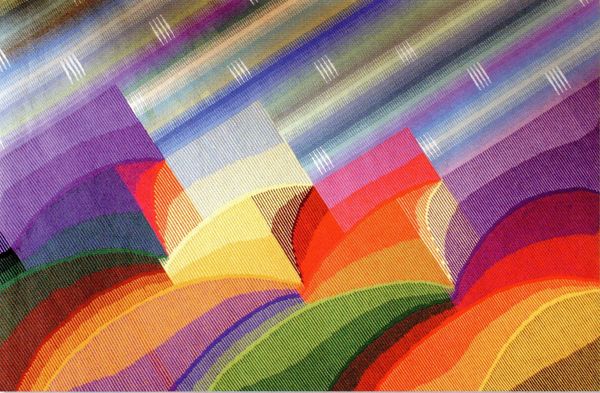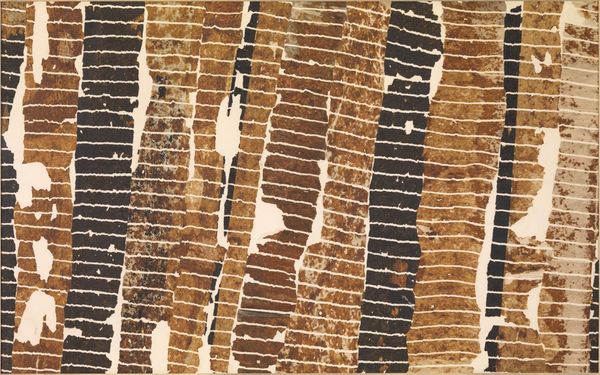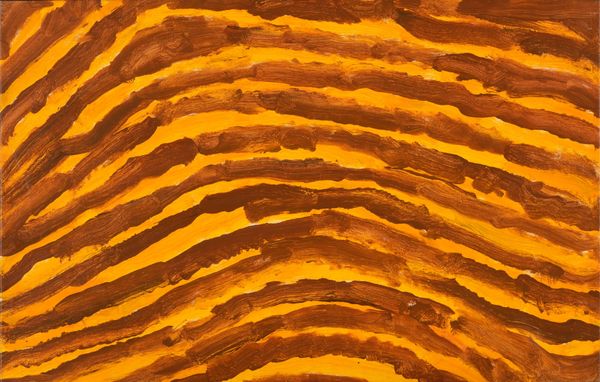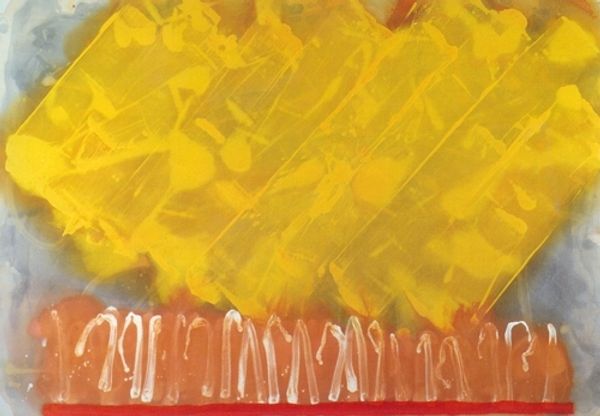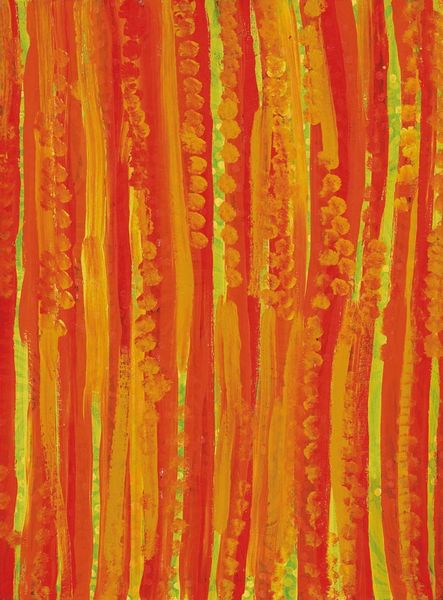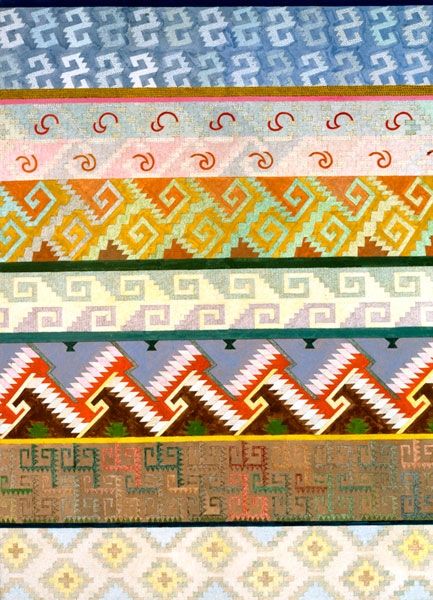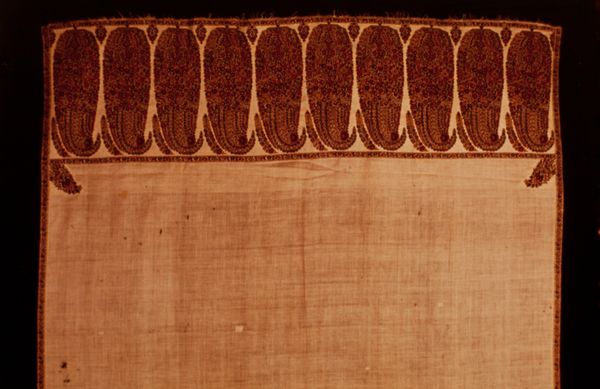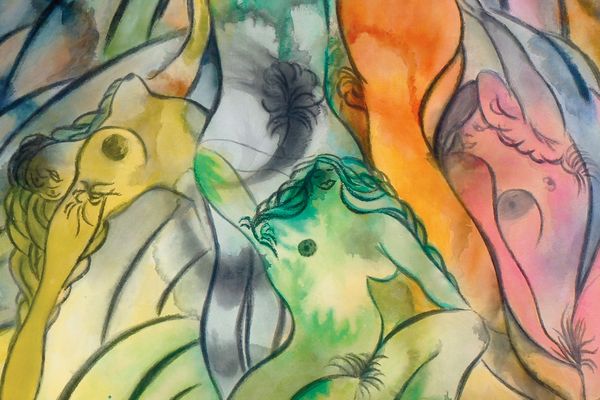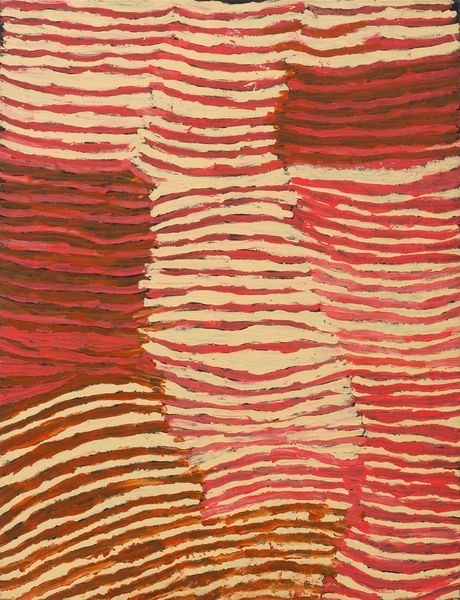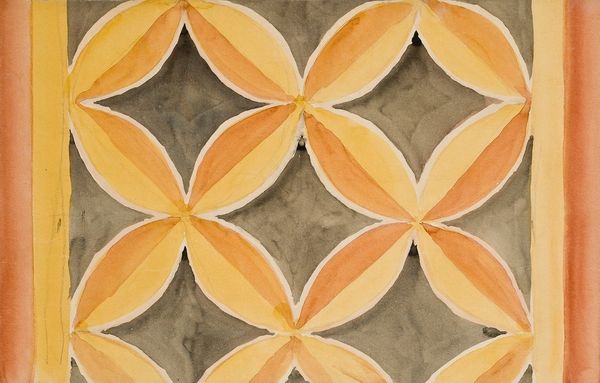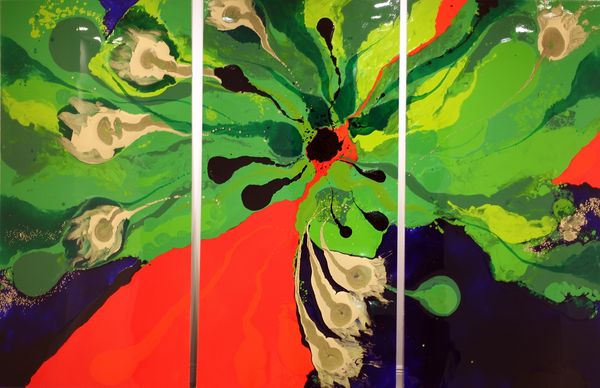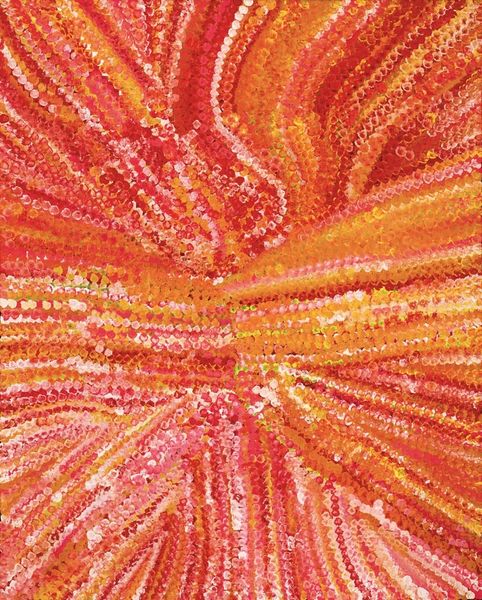
#
eye bird view
#
abstract expressionism
#
abstract painting
#
neo expressionist
#
acrylic on canvas
#
street graffiti
#
plant
#
animal portrait
#
portrait art
#
fine art portrait
#
expressionist
Copyright: Public domain
Editor: Here we have Arthur Dove’s, "Fields of Grain as Seen from Train," painted in 1931. It seems like a pretty abstract landscape, and I'm intrigued by the choice of colors and how he uses these thick, flowing lines. How do you interpret this work? Curator: As a materialist, I'm interested in how Dove's choices reflect the changing landscape of American agriculture and industry in the 1930s. Notice the stark contrasts in color and the almost mechanical precision of the lines. Editor: Mechanical? I thought it was more organic and flowing. Curator: Well, think about it: the industrialization of agriculture during this period meant fields were being farmed and viewed in a much more systematized way, including rail transport. How might that new means of travel change one's perspective? Editor: So, you're saying that Dove isn't just painting a pretty picture, but is commenting on the industrialization of farming? Curator: Precisely. The means of production is shaping not only the landscape, but also the way we perceive it. Consider also how the flatness challenges traditional landscape painting; is he rejecting a romanticized vision of nature for something more attuned to the realities of mechanized labor? Editor: That's a fascinating idea! I had never thought about how the method of farming, or even viewing the fields from a train, could impact the artwork itself. Curator: The artwork becomes a commentary on labor, landscape, and perception. It's all deeply intertwined with the means of production of its time. Editor: I'll never look at a landscape the same way again! Thank you!
Comments
No comments
Be the first to comment and join the conversation on the ultimate creative platform.
